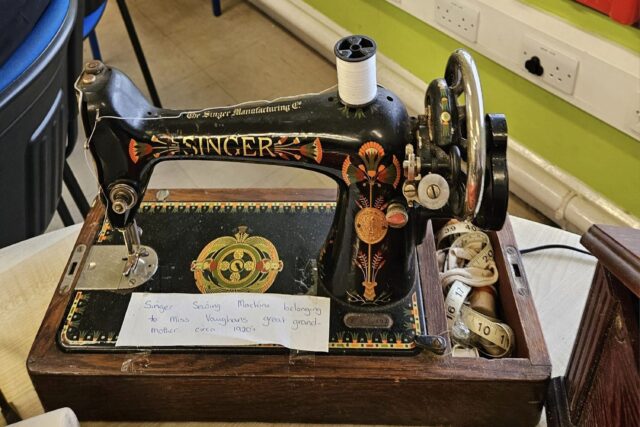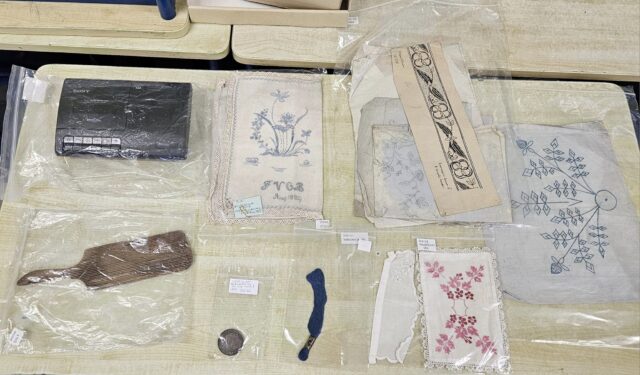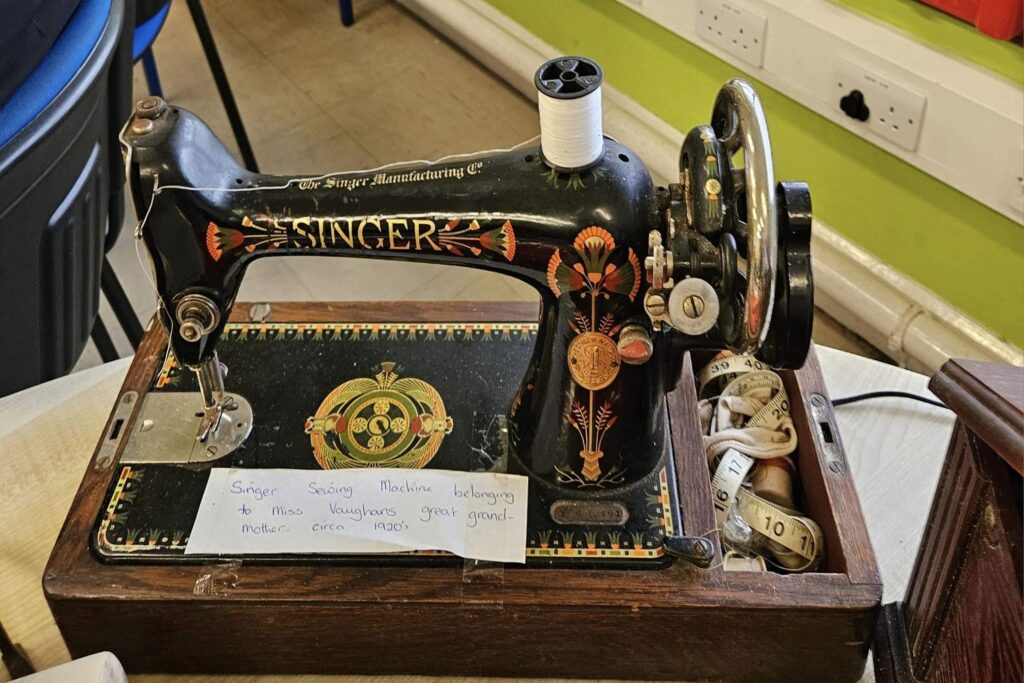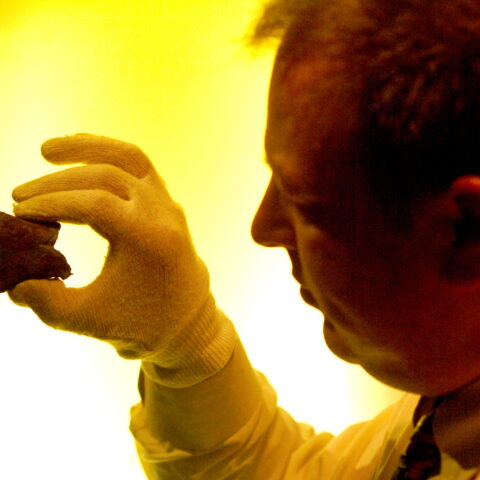
A Singer Sewing Machine, which still works.
Background
Recently, Clare Museum engaged in outreach for the first time in several years. This was made possible by the appointment of an Education and Outreach Officer, Teresa Carmody O’Shea in January 2024.
‘Sharing our Stories’
Thanks to Teresa, Clare Museum partnered with the Limerick and Clare Education and Training Board, Killaloe-Ballina Local History Society and Killaloe Boys National School for a ‘Sharing our Stories’ day, in Killaloe. This involved older members of the Killaloe community – some were grandparents of boys in the school – telling stories about objects they grew up with or used, but are now obsolete.
Items were displayed in four groups: domestic, farming, school and shop items. These objects were provided by the local community, the historical society and the boys’ teachers for the duration of the project. The boys were from 1st, 2nd and 3rd class and so were aged between 7 and 9 years of age. Groups of children would spend about 10 minutes with each of the four groups before moving on to another theme.
Objects included:
- A singer sewing machine
- Butter making equipment,
- A tilly lamp
- Vinyl records
- Clothes irons
- A countertop weighing-scales
The museum curator and the education officer arrived with a collection of domestic objects from the museum, including a cassette player, butter pats used for making butter, and items from the Clare Embroidery collection that showed how people made and repaired their own clothes.

Some items from Clare Museum that were taken to Killaloe Boys NS for ‘Sharing our Stories’.
When the boys were finished talking to the older people in the four groups, they sat with the curator who talked about the objects he had taken to the school. He also answered questions about being a museum curator and what happens at the museum.
Benefits of Intergenerational Projects
This type of intergenerational project is good for society, particularly for older people. According to a recent EU survey, loneliness in EU citizens is most prevalent in Ireland where up to 20% of respondents stated they were lonely most, or all of the time over the previous four weeks. A TILDA survey tells us that while social isolation in Ireland decreases for people between ages 50 to 68, it increases again after that age.
The ‘Sharing our Stories’ project has the potential to create a greater sense of connection and an increased feeling of purpose for older people and can combat loneliness. For the children, it can provide more learning opportunities, with the stories providing a better understanding of past lifestyles both similar and different to their own. For the museum, we were approached by an individual who had a number of items he felt belonged in the museum collection, and arrangements have been made to meet with him about it.
In short, taking collections from the museum into the community benefits everybody!
References:
Anonymous ‘The EU loneliness survey’, European Commission, 6th January 2023 [Accessed 15th May 2024]
Cordell, Ashlee, ‘Four Benefits of Intergenerational Programming’, BenRose.org 15 December, 2021 [Accessed 15th May 2024]
Ward, M, Layte, R, Kenny, R A, ‘Loneliness, Social Isolation and their discordance among older adults, Findings from the Irish Longitudinal Study on Aging (TILDA), [Accessed 20th May 2024]

